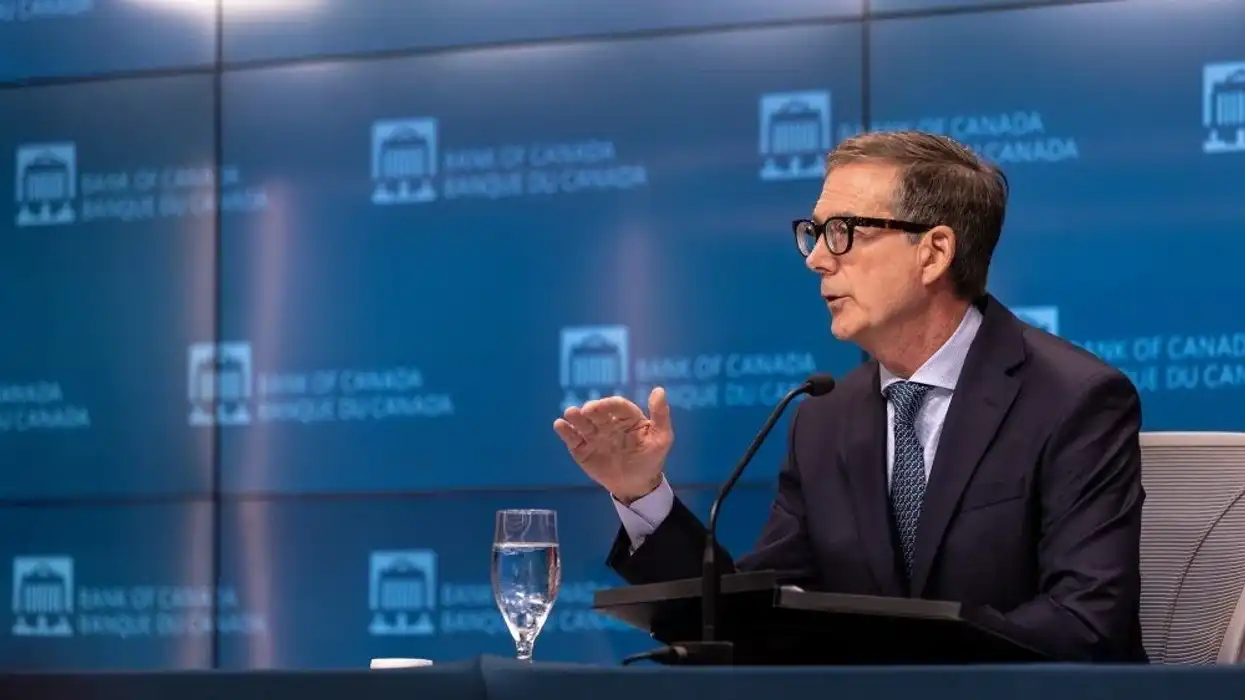Inflation may have picked up some steam in December, but many experts are still forecasting that the first interest rate announcement of the year, slated for Wednesday, January 24, will bring another hold.
More specifically, economists with Scotiabank, RBC, TD, and Desjardins are all predicting that the Bank of Canada (BoC) will hold its benchmark rate at 5%, which is where it’s been since the last rate hike in July.
Although the bank’s deliberations this week are anticipated to be fairly cut and dry, the press conference that will follow Wednesday’s announcement — it’s scheduled for 10:30 a.m. ET — could give Canadians some clues about those elusive rate cuts (or at the very least, help to manage expectations about when that first cut will realistically come). A quarterly Monetary Policy Report will also be released in tandem with the rate announcement.
On January 24, we’ll publish our Monetary Policy Report, providing you with the latest insights on Canada’s economy.https://t.co/DMEn1RyDVB#cdnecon
— Bank of Canada (@bankofcanada) January 22, 2024
“Forward guidance will be key to watch,” writes Scotiabank Economist Derek Holt in a note from Friday.
Given the recent re-acceleration in underlying inflation, Holt says that BoC Governor Tiff Macklem will likely be “cautious” in his remarks to the press, and may even allude to the fact that markets have thus far been “overly aggressive” in their pricing of rate cuts.
Bear in mind, Macklem himself said just last month that the BoC will need evidence the economy is “clearly on a path” to 2% inflation before he says anything concrete about rate cuts and their timing. And even if December’s inflation uptick was an anomaly, CPI remains almost a percentage and a half off of the bank's target.
In addition to inflation, far too many indicators are still too erratic for the BoC to approach the topic of cuts, Holt points out.
“Wage growth is off the charts in the Labour Force Survey and in monthly wage settlements. That’s especially true relative to tumbling productivity,” he says. “Immigration remains excessive relative to housing shortages. Fiscal policy continues to fight monetary policy. The US economy remains resilient. I’m not even a fan of the BoC’s guidance that they can cut before achieving 2% if it is forecast to occur given their track record at forecasting inflation.”
In a similar vein to Holt, RBC economists Nathan Janzen and Claire Fan write in a note (also from Friday) that Macklem’s press conference on Wednesday will be “watched closely for hints about how much longer the central bank expects to hold interest rates at these levels,” and warn that Macklem is expected to “push back against the idea” that the bank will ease its benchmark rate any time soon.
“There is some potential that the central bank could hint at an earlier-than-expected end to quantitative tightening policy but would likely take pains to communicate the primary objective of that change would be to ensure adequate liquidity in funding markets rather than flagging a shift to easier monetary policy and imminent rate cuts,” they add.
“In terms of the actual setting of monetary policy, economic developments have been soft enough to reinforce that further interest rate hikes won’t be needed, but inflation (and wage growth) have also been too sticky to push the BoC to consider starting an easing cycle yet.”





















